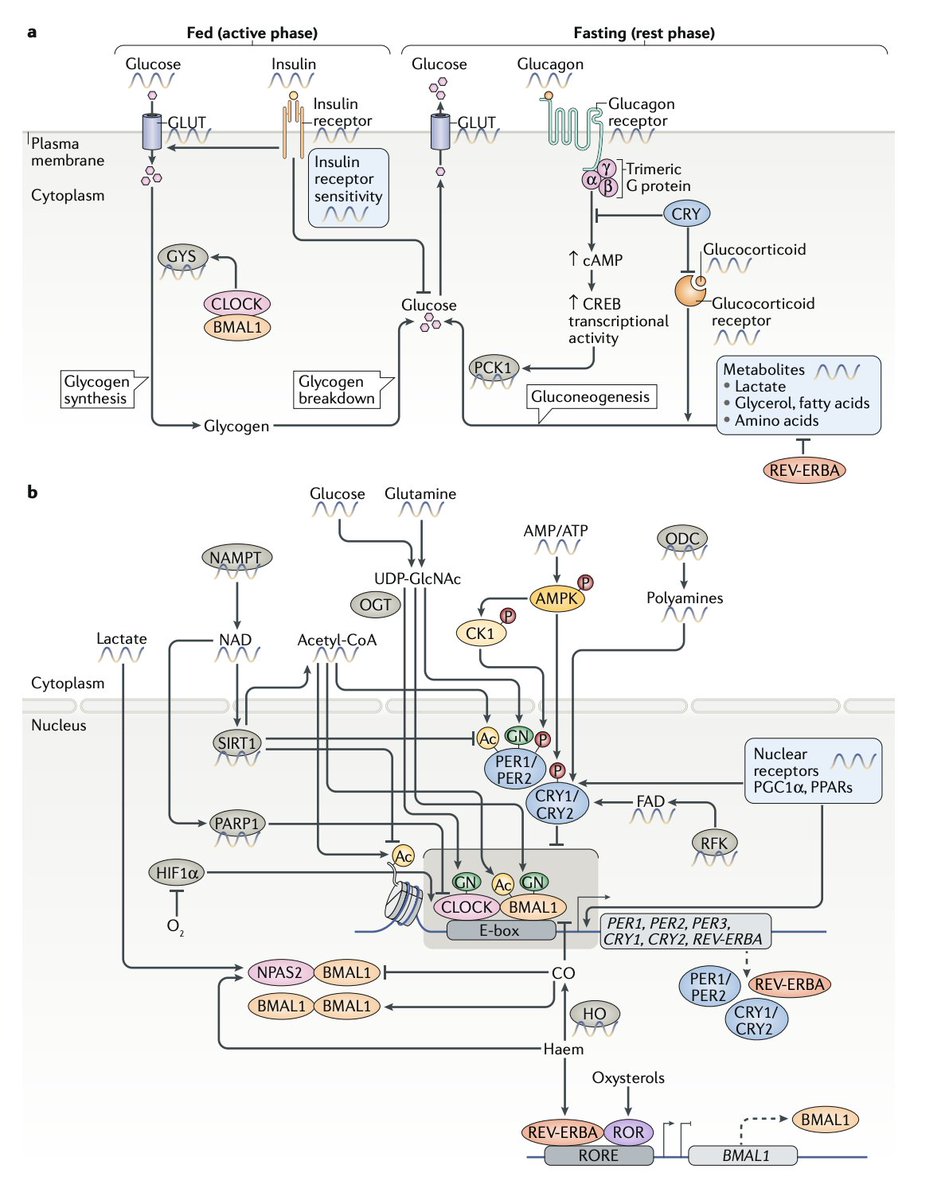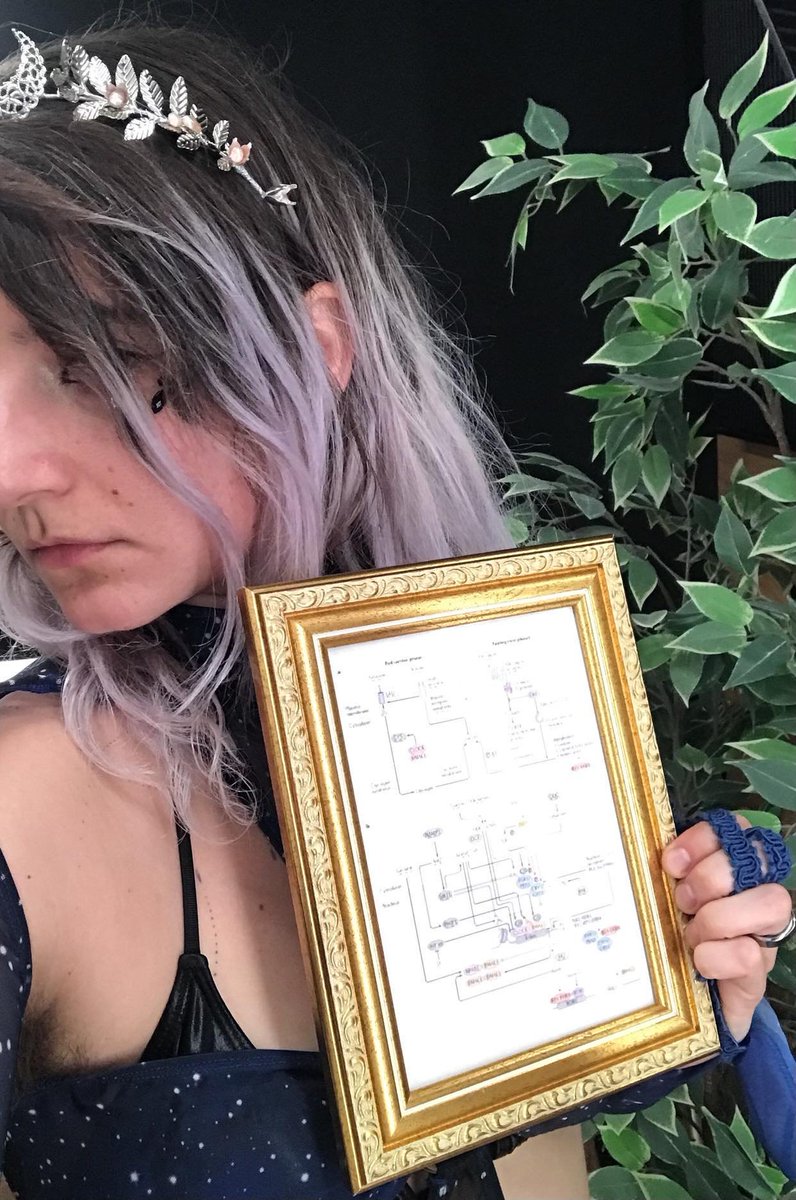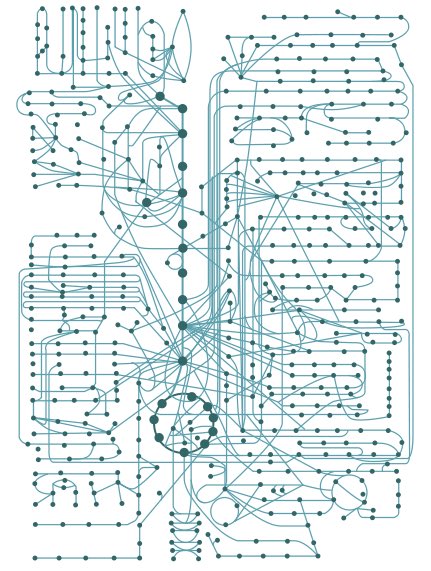my Halloween costume this year -
Nyx, Greek diety of the night
complete with metabolic network diagrams of the human circadian rhythm

Nyx, Greek diety of the night
complete with metabolic network diagrams of the human circadian rhythm


how else to reconcile the part of me that loves latenight festivity, with the part of me that loves early bedtimes?
they’re both ways of honoring the night
(I attached the framed metabolic network diagrams to my bag, so it became a handsfree prop 👍)

they’re both ways of honoring the night
(I attached the framed metabolic network diagrams to my bag, so it became a handsfree prop 👍)


> holy nectars of the skull
https://twitter.com/relic_radiation/status/1563311294996189184
I know less of Nyx’s story than I’d like, it sounds really interesting but I haven’t found good sources yet.
she was - maybe the second diety ever, after Chaos?
seems very foundational for how little reverence modernity pays to night nowadays
compared to sacredness of dark
she was - maybe the second diety ever, after Chaos?
seems very foundational for how little reverence modernity pays to night nowadays
compared to sacredness of dark
https://twitter.com/relic_radiation/status/1611389301358579712
another inspiration was a neuroscience student friend of mine
who totally stayed up late all the time
then learned some of the chemistry of the circadian rhythm and said “wow. ok I’m not messing with that ever again” and started sleeping much earlier
alas she couldn’t point me to the exact diagrams she saw! she says they were probably somewhere in MIT course number 9.15 dspace.mit.edu/bitstream/hand…
who totally stayed up late all the time
then learned some of the chemistry of the circadian rhythm and said “wow. ok I’m not messing with that ever again” and started sleeping much earlier
alas she couldn’t point me to the exact diagrams she saw! she says they were probably somewhere in MIT course number 9.15 dspace.mit.edu/bitstream/hand…
image citation is here; though this is but one piece of one piece of the whole human circadian rhythm
Cellular circadian metabolism of glucose and feedback of metabolism on the cellular clock - Crosstalk between metabolism and circadian clocks -
nature.com/articles/s4158…
Cellular circadian metabolism of glucose and feedback of metabolism on the cellular clock - Crosstalk between metabolism and circadian clocks -
nature.com/articles/s4158…

@threadreaderapp unroll
• • •
Missing some Tweet in this thread? You can try to
force a refresh







